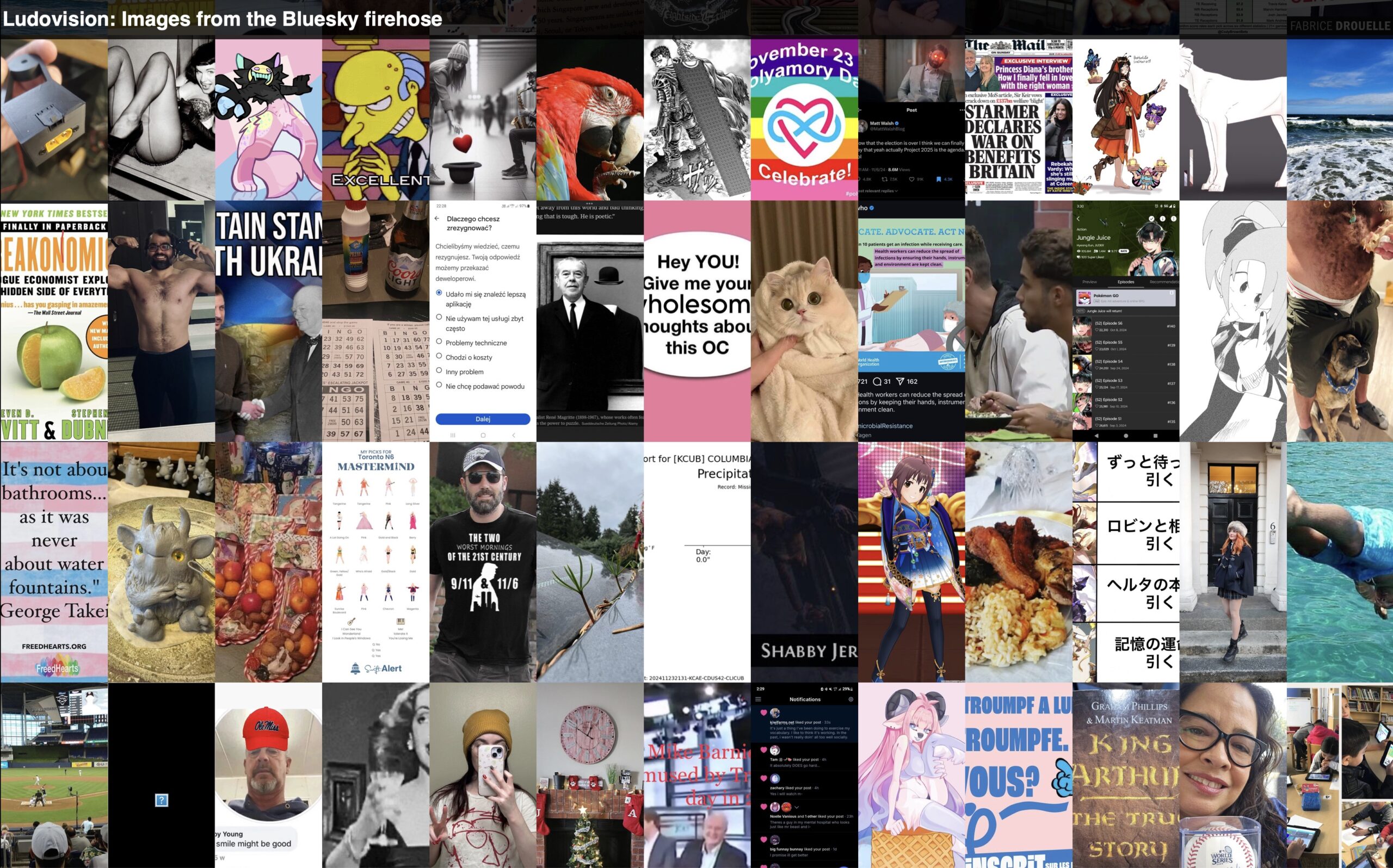Yesterday, I built a tool called Ludovision, and it gave me a front-row seat to the staggering amount of data we casually upload to the internet. It’s a simple proof of concept: a real-time stream of every image posted to Bluesky, accessible through their firehose. The results were both fascinating and unsettling.
Imagine scrolling infinitely through a feed of every image uploaded to a social media platform. With Ludovision, you can click on an image to view a larger version or jump to the uploader’s profile. It’s not complicated, nor is it secretive—it’s just data the platform already makes available. Yet, the experiment revealed a glaring truth: most people don’t understand the digital footprints they leave behind.
A few things struck me while building and using Ludovision:
- 🍆 is super common. I expected NSFW content, but I didn’t expect to see the sheer quantity of 🍆s I have.
- Your brain will thank you if you don’t try to figure out every image. Some things are better left unseen. Scrolling quickly becomes a survival mechanism. 😂
- Everything is public. Every image uploaded, every like, every follow—it’s all part of an enormous digital trail. And this isn’t unique to Bluesky; this applies to nearly every platform.
- No server required. The tool runs entirely client-side (I ran it in Private Browsing mode on Mac), and has no need for external libraries or remote code loading. There’s zero tracking of any kind. Privacy is respected—even in this experiment on the fragility of online privacy.
The experiment wasn’t about voyeurism—it was about understanding how fragile the idea of privacy through obscurity really is. We like to believe our contributions to the internet are small, insignificant, or lost in the noise. But tools like Ludovision expose how easy it is to aggregate that “noise” into something startlingly revealing.
The name Ludovision is a nod to A Clockwork Orange—specifically, the aversion therapy scene where the protagonist is forced to watch disturbing images as part of his “reconditioning.” Scrolling through this unfiltered firehose feels a little like that. It’s a vivid reminder of just how much we throw out into the world, often without realizing anyone can pick it up. See Wikipedia on “The Ludovico Technique.”
What Ludovision Taught Me About Privacy
This experiment drove home an important point: privacy through obscurity is not privacy at all. Just because you assume no one is paying attention doesn’t mean your data is safe. Platforms may feel ephemeral, but the data they generate is anything but.
The fragility of online privacy lies in how easily it can be pierced—not just by sophisticated hackers but by someone with a little curiosity and a bit of code. It’s not difficult to parse public APIs, gather metadata, or build tools like Ludovision to visualize what people are posting.
If you’re reading this, take a moment to think about the last thing you uploaded to the internet. An image, a comment, a like. Ask yourself: Would I be okay with someone aggregating this into a larger picture of me? Because someone can.
A Closing Thought
Ludovision is just one small experiment, but it highlights a much larger issue. We need to move beyond assuming obscurity equals security. Privacy doesn’t happen by accident—it requires intentional choices, both by the platforms we use and by us, the users.
Until we collectively take privacy more seriously, tools like Ludovision will continue to be easy reminders of just how much we’re giving away—one upload at a time.
#Privacy #Experiment #DigitalFootprints


